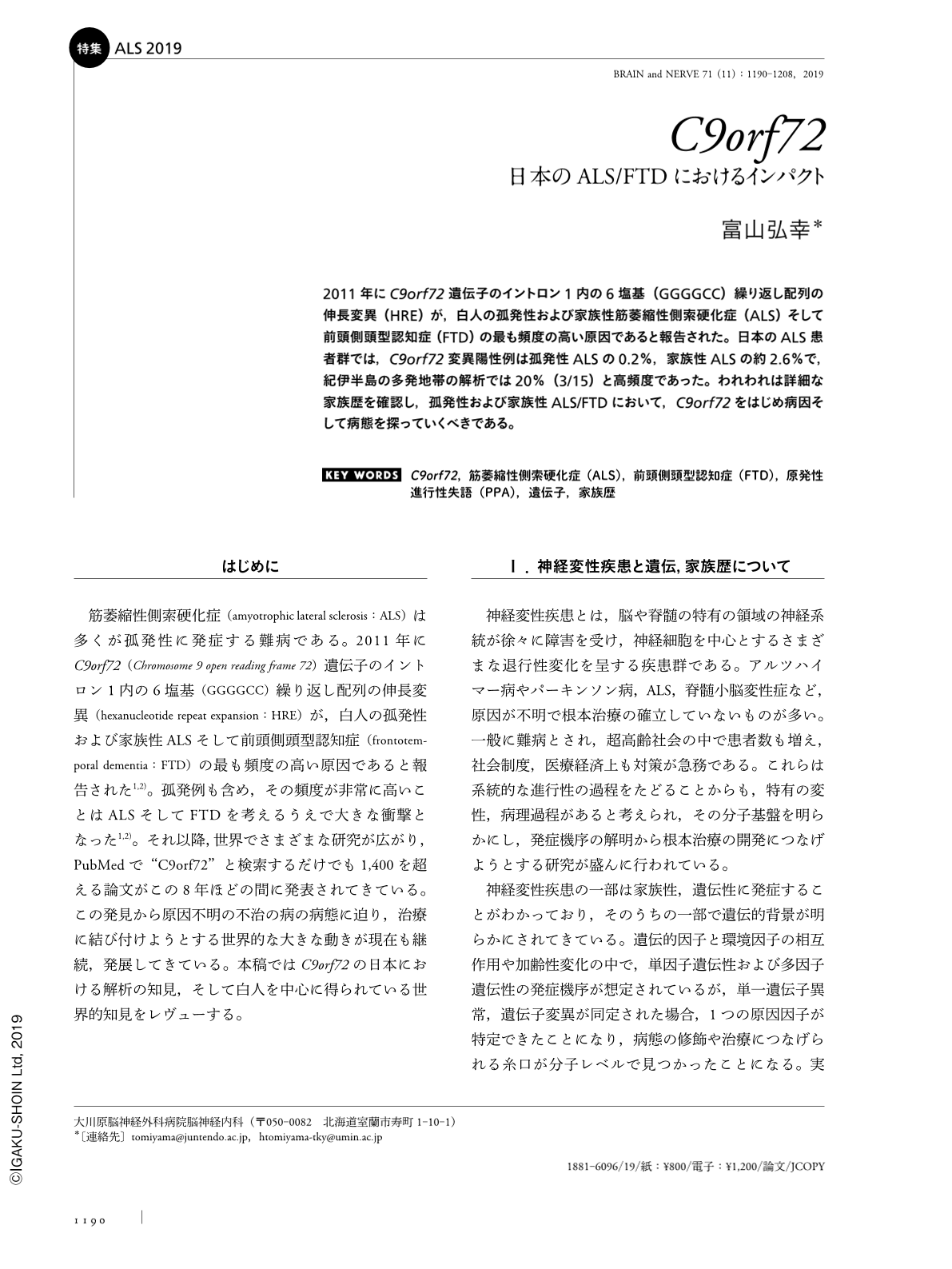Japanese
English
- 有料閲覧
- Abstract 文献概要
- 1ページ目 Look Inside
- 参考文献 Reference
2011年にC9orf72遺伝子のイントロン1内の6塩基(GGGGCC)繰り返し配列の伸長変異(HRE)が,白人の孤発性および家族性筋萎縮性側索硬化症(ALS)そして前頭側頭型認知症(FTD)の最も頻度の高い原因であると報告された。日本のALS患者群では,C9orf72変異陽性例は孤発性ALSの0.2%,家族性ALSの約2.6%で,紀伊半島の多発地帯の解析では20%(3/15)と高頻度であった。われわれは詳細な家族歴を確認し,孤発性および家族性ALS/FTDにおいて,C9orf72をはじめ病因そして病態を探っていくべきである。
Abstract
In 2011, C9orf72 hexanucleotide (GGGGCC) repeat expansion (HRE) in intron 1 was reported as the most common cause of sporadic and familial amyotrophic lateral sclerosis (ALS)/frontotemporal dementia (FTD) in the Caucasian population. In the Japanese population, the C9orf72 repeat expansion was found to account for 0.2% cases of sporadic ALS and 2.6% of familial ALS. Notably, among individuals in the Kii peninsula which has recorded high incidence of ALS or ALS/PDC (parkinsonism-dementia complex), the frequency of C9orf72 repeat expansion was 20% (3/15) indicating high prevalence. It is important to obtain detailed family history of ALS and FTD to understand the cause of the diseases including the C9orf72 mutation.

Copyright © 2019, Igaku-Shoin Ltd. All rights reserved.


